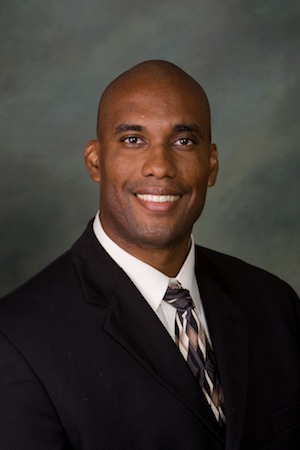As we all know, February is Black History Month. It’s a month where we honor those who have made an impact on American culture for equal rights, those who have invented, those who have a helped others and those who have inspired everyone to be the best they can be, not only as a person of color but as a human. Last year for Black History Month, I started an online series called 28 Days Diversity where I would feature someone new everyday for the month of February for just being awesome in their own right. Even though it’s black history month, the goal for 28 Days of Diversity is to feature not just African-Americans but other minorities in the web/tech space. Also note that 28 Days of Diversity is not a popularity contest or an influencer list but a list of thought leaders in the social web sector, including entrepreneurs, bloggers, conference organizers, IT professionals and friends not ranked in any particular order who I have either met in person or followed online. Each post will include a picture, bio, two links from the selected person and this paragraph.
For 2011 I wanted to not just feature individuals but also address a topic that affects everyone. For 28 Days of Diversity 2011 each post/person will answer the question How can we use technology to close the digital divide? So for the next 28 days, come back to visit SocialWayne.com/tag/28daysofdiversity and 28daysofdiversity.com to see who’s on the list. For day 1, I would like to introduce to some and present to others:
Anjuan Simmons
Website: AnjuanSimmons.com
Twitter: @anjuan
Anjuan Simmons is an information technology consultant who helps companies understand and implement emerging technologies. He is currently a Director at Adverlyze, a company that provides online marketing services. Before joining Adverlyze, Anjuan worked as an executive for Fortune 500 companies like Accenture and Deloitte Consulting. He is also a freelance writer who writes for Black Web 2.0 (http://www.blackweb20.com/author/anjuan/) and other online publications. Furthermore, Anjuan is a public speaker who focuses on topics such as technology, business, and minority advocacy. He has appeared as a technology expert on national radio programs and has been quoted in several magazines and newspapers including USA Today, Black Enterprise, The Huffington Post, and Essence.
Anjuan has an undergraduate degree in electrical engineering from the University of Texas at Austin and an MBA from Texas A&M University.
Anjuan’s speaking engagements in 2011 include giving a solo presentation at South by Southwest in Austin, TX, on March 12 (http://panelpicker.sxsw.com/ideas/view/6840) on “What Comic Books Can Teach Mobile Application Designers”, serving as the keynote speaker for the National Black Information Technology Leadership Organization (NBITLO) Technology Summit and Thought Leader Symposium, in Miami, FL, June 9 – June 12 (http://www.nbitlo.org/), and speaking at the Southern Regional Education Board’s Go Alliance Fall Conference in Atlanta, GA.
Anjuan lives in Houston with his beautiful wife and three amazing kids. His hobbies include reading, writing, social media, photography, travel, and exercise.
You can learn more about Anjuan by friending him on Facebook (facebook.com/anjuan), following his Twitter feed (twitter.com/anjuan), or reading his blog (AnjuanSimmons.com).
How can we use technology to close the digital divide?
While recent efforts by the FCC to limit the ability of technology gatekeepers like Comcast to not only maintain the digital divide but also profit from it show promise, I believe that government regulation is a limited solution. Although actions like the conditions mandated by the FCC when they approved the merger between Comcast and NBC-Universal that required, among other things, the supply of affordable broadband access and computer equipment to 2.5 million low-income households are necessary, the technology needed to close the digital divide does not reside in the hands of government agencies or media conglomerates.
The technology that will close the digital divide is the most advanced technology we’ve ever had in the history of mankind: the human mind. When that technology is combined with a will to help those less fortunate, then the opportunity and the motive for closing the digital divide can be leveraged. Minority technologists need to use their accumulated skills and experience to take an active role in closing the digital divide in the communities that produced them. This will require volunteering their time to work with what will probably be outdated equipment and with those who may initially struggle with some of the early foundational concepts. However, they will be rewarded by eventually seeing the investment they’ve made in their communities result in the production of minorities who are empowered to take hold of the digital future.
While government regulations can be effective, they are vulnerable to changes by future administrations. While new technologies can be revolutionary, they can be ineffective when the needs of minorities are not considered during the design and test phases. The best technology solution for the digital divide is the deployment of minority technologists to minority neighborhoods with a will to make a difference.
You can follow the status of 28 Days of Diversity 2011 on http://28daysofdiversity.com and https://socialwayne.com/category/28-days-of-diversity/

